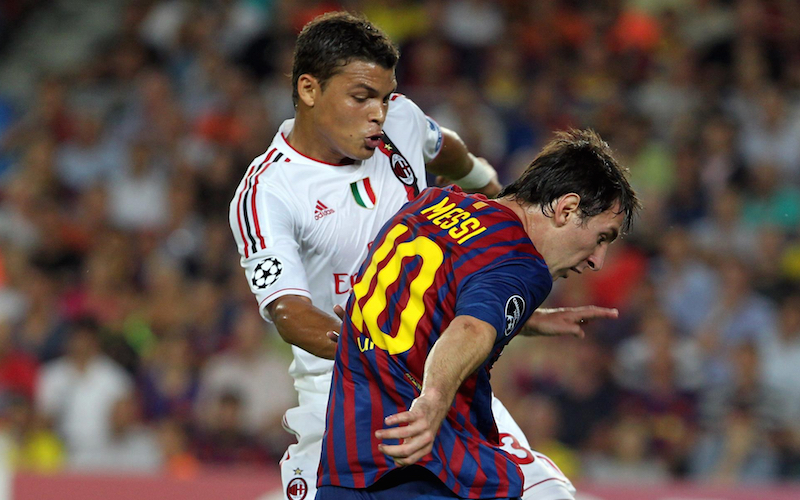
The Top-Down Approach Towards Chinese Investments into Euro Football
The release of a comprehensive soccer (football) reform plan designed by the Chinese government in 2014 was followed by a rapid response from the Chinese business community which, through different investment vehicles, began a determined drive into football related business areas. Including infrastructure, training and broadcasting rights. They are also investing large sums of money in recruiting experienced players and instructors from abroad for the domestic arena and by targeting the purchase of traditional European football clubs based in Britain, France, Spain and Italy.
Regarding investments in clubs, a flurry of big deals have been recorded involving Chinese investors who have not only bought minority interests; but either taken controlling stakes in clubs, such as Manchester City in England, Espanyol in Spain and Inter Milan in Italy; or acquired clubs outright, such as Aston Villa in England and AC Milan in Italy, whose long lasting leader and controlling shareholder, former Prime Minister Silvio Berlusconi, has recently authorized selling his 99.93% stake of the iconic club.
The Chinese Football Vision
Chinese President Xi Jinping has, on many occasions, pointed out that the Chinese football industry has to be encouraged and developed.
Xi Jinping is an avowed football fan who was pictured in a selfie shot by the Argentine Manchester City striker Sergio “Kun” Agüero in a trio including former Britain Prime Minister D. Cameron. Xi Jinping has laid out three goals for China: to qualify for a future World Cup, to host a World Cup and to win a World Cup.
The links between business, politics and culture are all intertwined as the basis of the reform plan he personally encouraged.
Indeed, the plan asserts that football has a great social impact and is loved by the great masses; and that the development and revitalization of football will improve the physical condition of the Chinese people, enrich cultural life, promote the spirit of patriotism and collectivism, cultivate a sports culture, and develop the sports industry. It also admits that such development and revitalization has a great significance for the realization of the dream of becoming a powerful sports nation, and great importance for the development of the economy, society and culture.
The plan also admits that organization and management systems are so far underdeveloped, remarking that the shortage of staff and supervision led to the weakness of the social foundation for the development of football.
The plan considers football as a beacon of hope for the masses and it also recognizes that the international experiences and the following of a market approach to realize investments and for assigning broadcast rights and revenues to the teams will provide a development pathway for Chinese football to fulfill its full potential value.
According to the governmental plan, the Chinese Football Association published a detailed report with an interim plan to achieve its goals, targeting 50 million people playing football by the year 2020 with 20,000 schools to be designated as football institutions. Primary, middle, high school and college leagues will be organized and teams will compete at district, regional and national levels.
The AC Milan Deal
Negotiations concerning AC Milan have been attracting international attention and due to the fact that it was preceded by previous attempts to reach an agreement to sell a stake to Thai tycoon, Bee Taechaubol.
The recent agreement reached with Chinese investors is expected to set a milestone for Italian “calcio” -which is going through a big crisis- with reverberations on a European scale.
In particular, the Chinese group of investors who were represented by Sino-Euro Sports Investment Management Chagxing Co. Ltd. includes some Chinese state-owned companies and companies active in the financial and industrial sectors and the buyers agreed to acquire Fininvest.
The amount of money involved in the transaction stands among the highest of the current wave of deals as the assets were valued at $821 million. After assuming an estimated indebtedness of $244 million a net payment of €520 million was made to the seller. The agreement also requires the buyers to undertake capital injections amounting to $388 million over a three-year period.
The transaction will be completed by the end of 2016, subject to applicable authorizations from the Italian and Chinese authorities.
The deal also marks the retirement of Mr. Berlusconi as Executive Chairman of the club. Incoming owners will appoint Marco Fassone as the new CEO, while Mr. Berlusconi will stay as Honorary Chairman.
Considering that Silvio Berlusconi has recently suffered a heart attack and, according to his doctor, “he risked dying,” his decisions to sell the club and to leave its direction was not a surprise for AC Milan supporters and media experts.
The news about the sale of AC Milan came shortly after Mr. Berlusconi appointed Dr. Stefano Parissi to overhaul Forza Italia party in light of the referendum next November to amend the Italian constitution as a political reform designed by acting Prime Minister Mateo Renzi.
